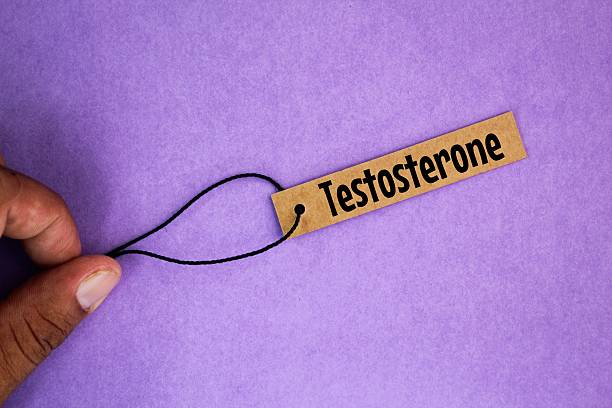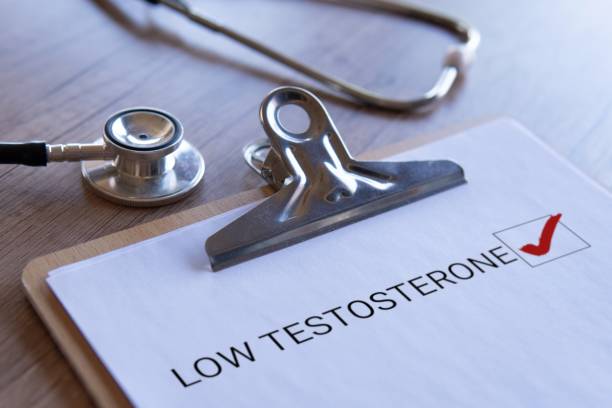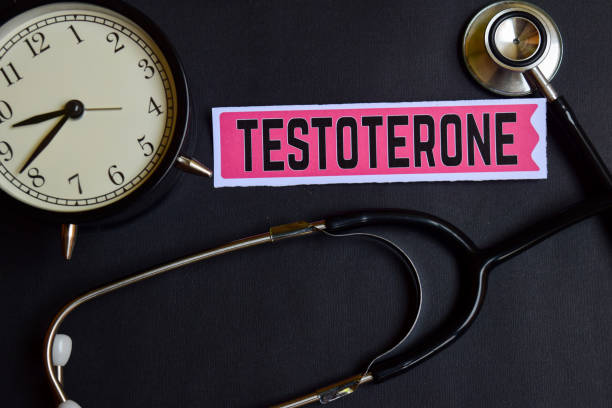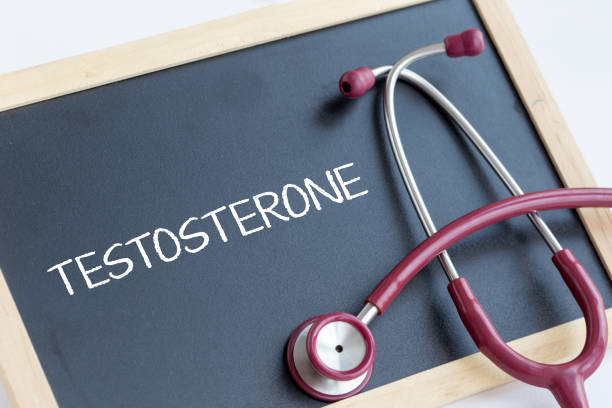Erectile dysfunction (ED) is a lot more common than people think. It can affect men of all ages, not just older adults. While stress, aging, and health problems like diabetes or heart disease can cause ED, there’s another important piece to the puzzle—testosterone. This powerful hormone isn’t just about boosting your sex drive. It plays a big role in your overall sexual health, especially when it comes to getting and keeping an erection.
In this post, we’ll take a closer look at the connection between testosterone and erectile dysfunction. You’ll learn about the signs of low testosterone, what causes it, treatment options, and natural ways to help keep your hormone levels in balance.
What Is Testosterone?
Testosterone is the main sex hormone in men. It’s made mostly in the testicles and plays a big role in many parts of male health. This important hormone is responsible for:
- Building strong muscles and bones
- Deepening the voice during puberty
- Helping facial and body hair grow
- Producing sperm
- Boosting sex drive (libido)
- Supporting healthy erectile function
Although it’s known as a male hormone, women also make small amounts of it in their ovaries. However, men usually have much higher levels than women. When the levels drop too low, it can affect a man’s energy, mood, and sexual health.

Understanding Erectile Dysfunction
Erectile dysfunction (ED) happens when a man has trouble getting or keeping an erection that’s firm enough for sexual activity. It’s normal to experience this once in a while, especially during times of stress or fatigue. But when ED becomes frequent or long-lasting, it may be a sign of an underlying health issue that needs attention.
Common Causes of ED:
- Heart disease or high blood pressure
- Diabetes and blood sugar problems
- Obesity and poor physical health
- Smoking and heavy alcohol use
- Stress, anxiety, or depression
- Hormonal imbalances like low testosterone
ED is often linked to both physical and emotional factors. Understanding what’s causing it is the first step toward finding the right treatment and getting your confidence back.
The Link Between Testosterone and Erectile Dysfunction
Low testosterone levels can lower your sex drive and may also make it harder to get or keep an erection. But the relationship between testosterone and ED isn’t always simple—it can vary from person to person.
How Testosterone Affects Erections
Getting an erection is a complex process that involves your brain, hormones, nerves, and blood vessels. It supports this process in several ways:
- Activates brain receptors tied to sexual desire
- Helps produce nitric oxide, which boosts blood flow to the penis
- Improves mood and energy levels, which can impact sexual performance
Can Low Testosterone Cause ED?
Yes, low testosterone can cause ED—but not in every case. A study published in the Journal of Sexual Medicine found that low testosterone is linked to reduced libido and, in some men, problems with erections. Still, many men with low testosterone can have erections when aroused or with the right stimulation【source】.
So while it isn’t the only factor behind ED, it definitely plays a key role in your sexual health.
Signs of Low Testosterone
Low testosterone can affect more than just your sex life. It can impact your body, mood, and overall well-being. Here are some common signs to look out for:
- Low sex drive or loss of interest in intimacy
- Trouble getting or keeping an erection
- Feeling tired or having low energy
- Loss of muscle strength or size
- Gaining body fat, especially around the belly
- Mood swings, irritability, or feelings of depression
- Trouble focusing or remembering things
If you notice several of these symptoms, it may be time to talk to your doctor. A simple blood test can check your levels and help you find the right treatment if needed.
Diagnosing Low Testosterone and ED
If you’re showing signs of low testosterone or erectile dysfunction, a healthcare provider can help figure out what’s going on. The diagnosis usually includes a few simple steps:
- Reviewing your symptoms and overall health history
- Performing a physical exam to check for signs of hormonal changes
- Ordering a blood test—usually done in the morning when the levels are at their highest
A normal testosterone level typically falls between 300 to 1,000 ng/dL. If your levels are below 300 ng/dL, they are often considered low and may explain your symptoms.
Getting the right diagnosis is the first step toward feeling better and improving your sexual health.

Treatment Options for Low Testosterone and ED
If low testosterone is part of the reason you’re having trouble with erections, there are several treatment options that may help. The right approach depends on your overall health, symptoms, and personal goals. A doctor can guide you toward a plan that works best for your needs.
1. Testosterone Replacement Therapy (TRT)
Testosterone Replacement Therapy (TRT) is used to bring testosterone levels back to a healthy range. This treatment can be given in several ways:
- Injections
- Skin patches
- Topical gels
- Small pellets placed under the skin
Many men who use TRT report feeling better. It can help boost sex drive, improve mood, and increase energy. However, TRT is not a complete fix for erectile dysfunction. If ED is caused by other health issues—like diabetes or poor blood flow—TRT alone may not solve the problem【source】.
Important: TRT can have side effects, such as acne, trouble sleeping (sleep apnea), or a higher risk of blood clots. Always talk to your doctor before starting any hormone treatment.
2. Erectile Dysfunction Medications
Medications like Viagra, Cialis, and Levitra are often used to treat ED. These drugs help improve blood flow to the penis, making it easier to get and keep an erection.
If low testosterone is also lowering your sex drive, combining ED medications with Testosterone Replacement Therapy (TRT) may work better than using just one treatment. This combination can target both poor blood flow and low hormone levels for better results.
Talk with your doctor to see if this dual approach is right for you.
3. Lifestyle Changes
Healthy habits can make a big difference. In many cases, simple lifestyle changes can help raise the levels and improve erectile dysfunction symptoms—naturally and safely.
Some helpful changes include:
- Eating a balanced diet rich in whole foods
- Exercising regularly, especially strength training
- Getting enough sleep each night
- Reducing stress through relaxation or mindfulness
- Quitting smoking and limiting alcohol
These habits not only support hormone health but also improve blood flow, energy, and mood—all of which play a role in sexual function.
Natural Ways to Boost Testosterone and Improve ED
Looking for a natural, drug-free way to support your hormones and improve erectile health? These proven tips can help raise testosterone and ease ED symptoms:
✅ Exercise Regularly
Physical activity is one of the best natural boosters for testosterone.
- Strength training and HIIT (high-intensity interval training) are especially effective.
- Aim for at least 30 minutes of movement each day.
✅ Eat a Balanced Diet
What you eat affects your hormones.
- Choose whole foods with healthy fats, lean proteins, and fiber.
- Add zinc-rich foods like oysters, pumpkin seeds, and spinach.
- Don’t forget about vitamin D—get it through sunlight or fortified foods.
✅ Get Enough Sleep
Sleep is key for hormone balance.
- Aim for 7–9 hours each night.
- Poor sleep lowers testosterone and increases stress.
✅ Manage Stress
Too much stress raises cortisol, which lowers testosterone.
- Try meditation, deep breathing, yoga, or taking a daily walk to relax.
✅ Maintain a Healthy Weight
Extra body fat, especially around the belly, can reduce testosterone.
- Losing just 5–10% of your weight can boost your hormone levels and improve ED.
✅ Avoid Alcohol and Tobacco
Drinking too much or smoking can harm testosterone production and blood flow.
- Cutting back can help improve your sexual health and overall well-being.

When to See a Doctor
If you’ve made healthy lifestyle changes but still experience erectile dysfunction or a low sex drive, it may be time to talk to a healthcare provider. There’s no need to feel embarrassed—many men face these issues, and medical professionals are here to help.
Getting early treatment can make a big difference in managing ED and low testosterone. Your doctor can assess your symptoms, run tests, and recommend a treatment plan tailored to your needs.
Don’t wait—help is available, and you don’t have to go through it alone.
Final Thoughts: Take Charge of Your Sexual Health
Testosterone is a vital hormone in male sexual function, but it’s just one part of the larger picture. Erectile dysfunction often results from a combination of physical and emotional factors, including stress, medical conditions, and lifestyle choices.
If you suspect that low testosterone is affecting your performance or overall health, don’t wait to seek help. Get tested, discuss your symptoms with your doctor, and explore the treatment options that are right for you.
Ready to Feel Like Yourself Again?
Improving your testosterone levels could be the key to restoring your energy, boosting your confidence, and enhancing your sex life. Start with small, positive changes—whether through diet, exercise, or medical treatments—and work with your doctor to create a personalized plan.
Have you or someone you know experienced low testosterone or erectile dysfunction? What worked best for you? Share your experiences in the comments below—we’d love to hear your story and help others on their journey to better health.

